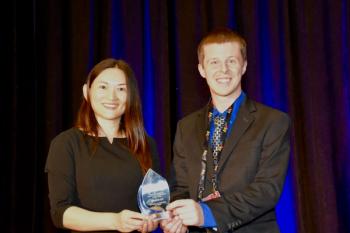
Advancing Agriculture For Future Generations: A Joint LCGC and Spectroscopy Content Series
A joint content series from LCGC and Spectroscopy will launch in the first quarter of 2024.
Agriculture is one of the most important industries in the world. Because it involves cultivating crops and rearing animals for food, it is the foundation of human civilization. It has played a central role in shaping societies, economies, and the environment for thousands of years. Agriculture has been not only a means of sustenance, but it remains an essential part of a state's economy as a vital driver of economic growth and development. It involves various practices, such as planting, harvesting, irrigation, and animal husbandry, and has evolved significantly over time with advances in technology, science, and globalization.
Modern agriculture is characterized by the use of advanced machinery, genetically modified crops, and precision farming techniques to increase crop yields and livestock production. However, it also faces numerous challenges, including the need for sustainable and environmentally friendly practices, the preservation of biodiversity, and ensuring food security for a growing global population. Climate change poses a significant threat to agriculture, with shifting weather patterns, extreme events, and changing temperatures affecting crop productivity and requiring adaptation strategies. There is also a growing emphasis on organic farming, agroforestry, and other sustainable practices that aim to minimize the environmental impact of agriculture while meeting the nutritional needs of society.
Spectroscopy is advancing the agriculture industry by providing valuable insights into the composition, health, and quality of agricultural products and ecosystems. One of its primary applications is in remote sensing, where satellite and drone-based spectroscopic techniques are used to monitor crop health, estimate yields, and assess environmental conditions. By analyzing the reflectance and absorption patterns of light at different wavelengths, spectroscopy enables farmers to make informed decisions about irrigation, fertilization, and pest management, thus optimizing resource use and increasing crop productivity. Spectroscopy is instrumental in food quality assessment, allowing for the rapid and non-destructive analysis of nutrients, moisture content, and contaminants in agricultural produce. It is also employed for soil analysis, helping farmers understand soil composition, nutrient levels, and pH, facilitating tailored soil management practices.
This joint content series, titled, “Advancing Agriculture for Future Generations,” will spotlight how chromatography and spectroscopy is contributing to the advancement of agriculture, and how innovation in analytical science is propelling the agriculture industry to new heights in the modern era. We will look at the current and ongoing research being conducted in the field, focusing on the chromatographic and spectroscopic techniques that are propelling the agriculture industry forward and helping to solve the current challenges that farmers face.
We are looking forward to sharing this content series with you early in 2024!
This article was written with the help of artificial intelligence and has been edited to ensure accuracy and clarity. You can read more about our
Newsletter
Get essential updates on the latest spectroscopy technologies, regulatory standards, and best practices—subscribe today to Spectroscopy.




